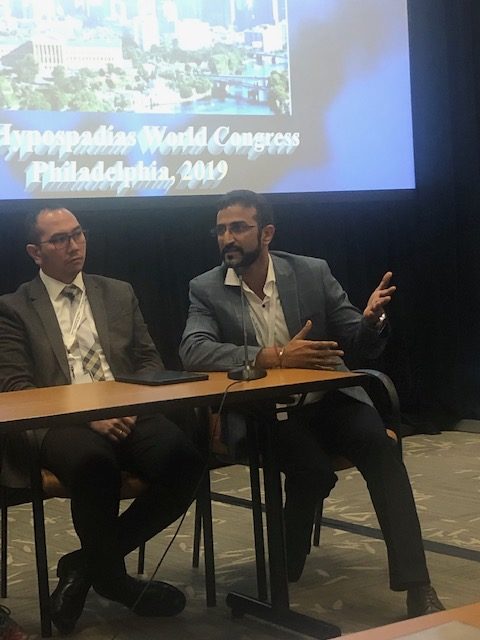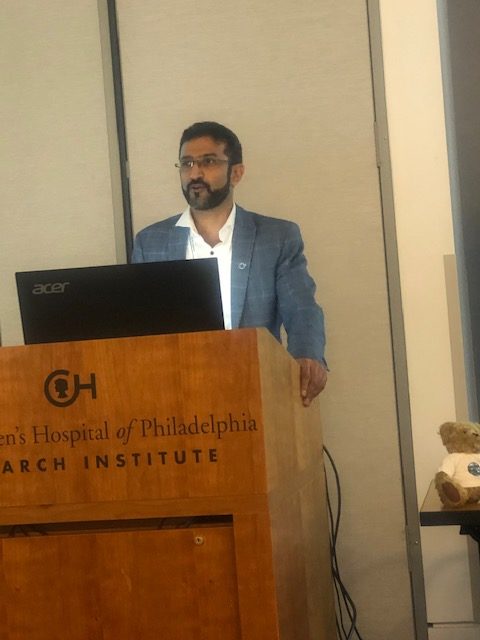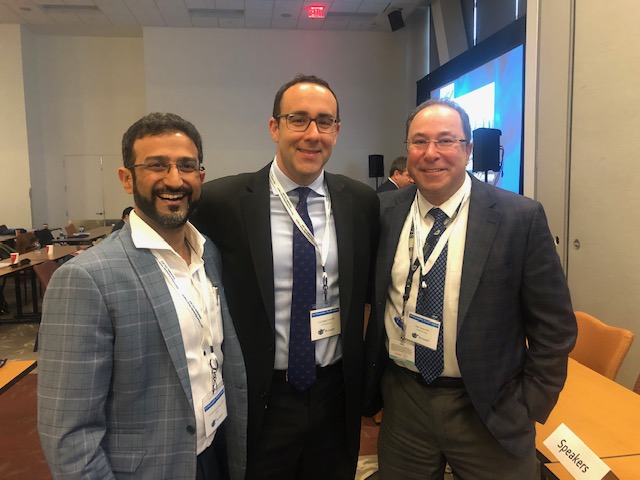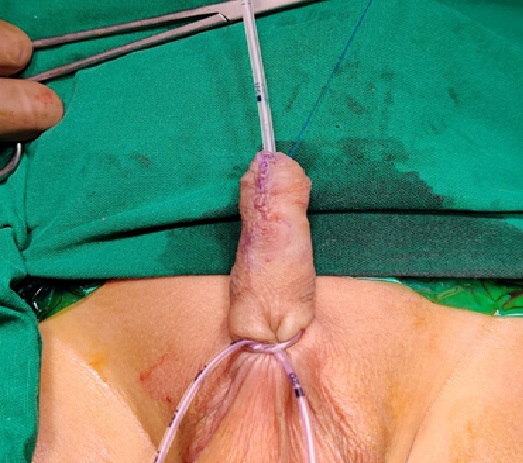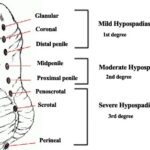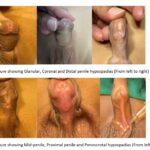Let me begin by saying: Hypospadias Repair surgery is not an easy surgery and Surgeon and Family must work together.
It takes a surgeon years to perfect the art and craft of hypospadias surgery. Every single slice of the knife, every single snip of scissors, every single stitch holds the key to a successful hypospadias repair. Despite all this, sometimes the results of hypospadias surgery may be suboptimal. The reasons for this are many. Besides an undertrained surgeon or poor equipment or expertise, sometimes the healing after hypospadias surgery is unpredictable. Even after hypospadias surgery, the penis has erections every night, putting the repair under a little bit of stress. There may be minor infection, or the child may be nutritionally deficient in micronutrients leading to poor healing. Even if these factors are controlled, individual healing is still a very variable phenomenon, leading to a small rate of complications even in expert hands. In the best hypospadias centers, hypospadias complications dip to less than 5% for distal hypospadias and less than 15% for severe hypospadias.
Any complication which happens can be disheartening for the family, the child as well as for the hypospadias surgeon. Surgeons particularly get emotionally disturbed and keep thinking about it even when they go back home and more so the surgeons who are sensitive. We as surgeons forget our 95% successes and keep carrying the burden of our complications back to our homes and our families; even the minor things haunt us. Though we may keep a strong face on the exterior, much required, inside we suffer every time something doesn’t go well. Hence, we keep striving for better and better results. Surgeon and Family must work together
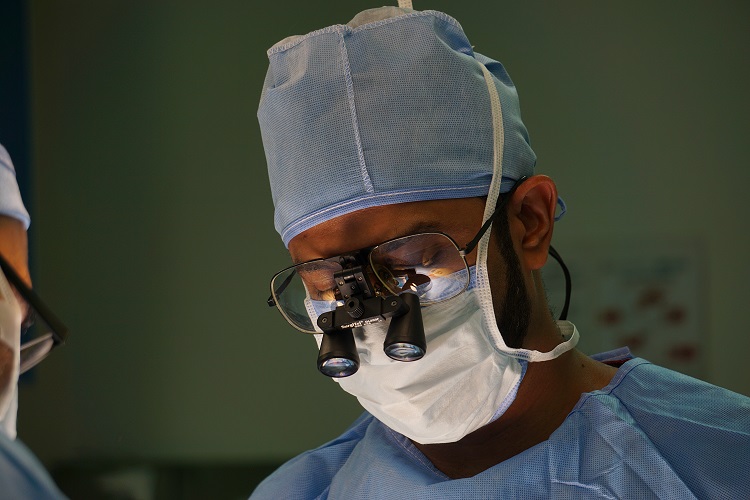
Dr A.K.Singal, Pediatric Urologist India
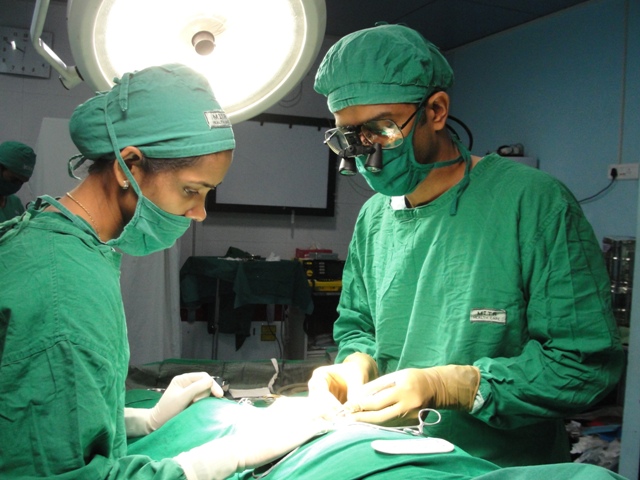
Dr A.K.Singal during Hypospadias surgery
Well coming back to the point- One of the most common complications of hypospadias surgery is Urethral Fistula formation. Having a complication such as fistula is not the end of the road. If the family has faith and the surgeon is experienced, urethral fistula can be managed easily with a minor second surgery in most of the cases.
I wish to share one story sent by the parents on an email to us and without any changes. The family came to us from Pune to Navi Mumbai for hypospadias treatment. Here we go:
It was indeed the happiest day of our lives when we welcomed our little bundle of joy; but soon after our son was born, the paediatrician informed us the baby is having a condition called Hypospadias with chordee albeit the degree of both the conditions was really minor, yet requiring surgery. The term Hypospadias was unheard of until then by us as well as seniors in the family. It was so devastating for us to know that the little one is already scheduled for the surgery – especially on such delicate place – before even he is a month old. Although the surgery was never life threatening and was elective in nature, as parents we were extremely nervous and anxious. Like every anxious parent, we too googled about the condition – which helped us understand better about hypospadias – before taking the next step of seeing the surgeon. Here in Pune, we did meet at least 2-3 paediatric surgeons (not the urologists or who specialise in hypospadias surgery). A senior doctor suggested 2 surgeries even for this minor hypospadias. Later we met 2-3 more doctors who suggested various methods be it keeping baby hospitalised for 7 to 10 days with medicines administered through IV lines or keeping the baby open after catheterization plus keeping his legs tied to each other in order to avoid dislodgement of catheter when he moves his legs; not to mention we were extremely petrified after meeting all these doctors as they were not at all empathetic not cordial. Not unexpectedly we were not convinced with any of the doctors as through google we already had understood that the condition can be treated as a day care surgery and babies are managed on oral medicines and in double diapers. Here, no doctor was talking about diaper and taking the baby home next day if not the same day. With due to respect to these doctors, we didn’t want to go ahead with the doctor with whom we were not comfortable with whatever little knowledge we have had gathered on this subject. The question of finding the right doctor was still there. Again, while googling we could get to know that there could be doctors who specialise as paediatric urologists and have vast experience of treating the babies / kids with hypospadias. Thanks to google and age of internet we found Dr. A.K. Singal.
The day we met Dr. Singal:
By the time we met Dr. Singal, our son was already 5 months old. After meeting Dr. Singal we realised why things didn’t move ahead with the previous doctors. Meeting Dr. Singal was so up to the mark as he explained the condition in detail, what he will be doing in the operation theatre and how the baby will be managed post-surgery. He was not only empathetic but also cordial and could understand what exactly the parents must be going through when their little ones must go through the surgery at very young age. His attitude was very positive. We had met the doctor we were looking for. Needless to say, we were so convinced and decided to go ahead with the surgery by Dr. AK Singal. He confirmed that both the defects would be covered in one surgery and the chances of any complications could be considered up to 2-3%. The age he suggested for the surgery was between 6 to 9 months. We took our own time to decide on the date of surgery and scheduled it when he was 14 months old. In the meanwhile, we met Dr. Singal twice with the doubts that we had. Each time he was very cordial in explaining the doubts in detail.
On the day of Surgery:
It was finally the day of the surgery. Nevertheless, we knew that the surgery is going to be for baby’s own good, yet our hearts were in the mouth. The doctor, as well the staff are so good that they would cater to every alarm by an extra-anxious and sensitive parent like me. The surgery went well, and the baby was brought back to the room. He was sleeping most of the day but when he opened his eyes I missed my heartbeat in the anticipation that he, now, would feel pain and the soreness; but to our surprise, he did not have any post-surgical pain on that day and any following day thereafter till the wound was healing. He was at his playful best by the next morning of surgery. He was kept in double diapers i.e. a hole was made in the inner diaper through which catheter was brought out and left to drain in the outer diaper. This method provides a cushion to the operated site, avoids catheter getting pulled accidently and makes it easy for parents to carry the child. Doctor suggested us to go home the next day, but we decided to continue for one more day for the betterment of the child. The nurses were so attentive and very cordial. After removal of the dressing and catheter, unfortunately our son caught the infection at the operated site which resulted in an extremely tiny fistula, which could not be spotted unless seen with the extreme care. This fistula was so tiny that the urine would come out from it in a drop or two. Later, as he was growing the urine output from the fistula grew to multiple drops.
Next appointments with the doctor:
Despite our son developed the fistula, our faith in the doctor never faded away as we were sure that doctor must have done his job with 100% care, and it was our and our baby’s fate to have the complication. The doctor never rushed and pushed us for the second surgery. He was hopeful that this tiny fistula can be healed on its own over the course of time; but the misfortune may have it, the fistula never healed, and worsened with the age by the end of year 2018. We had no choice but to put him through yet another surgery. This time as well the same protocols were followed and now our son is doing good after relatively minor second surgery.
Notes for the parents:
- Please do your research when your little one requires any kind of surgery.
- Have your questions ready so that you don’t miss any of them while you see the doctor
- Trust your vibes. Don’t go ahead with the doctor unless you’re 100% convinced.
- Get all your doubts cleared before you schedule your little one for the surgery
- Take a note of your baby’s food habits and arrange for them well in advance, especially if you are an intercity / interstate / international patient. Carry sufficient (or maybe surplus) supplies during this crucial time as the baby / child can be cranky due to change in schedule and nonetheless due to procedure.
- Carry his / her favourite toys, as that can sooth them.
- Engage them with cartoon videos
- Most importantly, however low and stressed you feel, never show baby /child your emotions and keep the spirit high. This is a tough time which too shall pass, just hang in there.
- Follow medicine schedule very promptly. Be on top of the pain. Be very punctual when to comes to medicine schedule.
- Be vigilant but don’t panic, call the hospital if you are not sure what to do?
Hope this story helped the families out there in some way. The lessons from the story can help both the surgeon and the family in having faith in the worst of times.
Take care and god bless.
Dr Singal
Fill up contact form: https://www.hypospadiasfoundation.com/contact/
Contact Form for Hypospadias Foundation
Please fill all clinical details and upload pictures and clinical summaries (if available)

